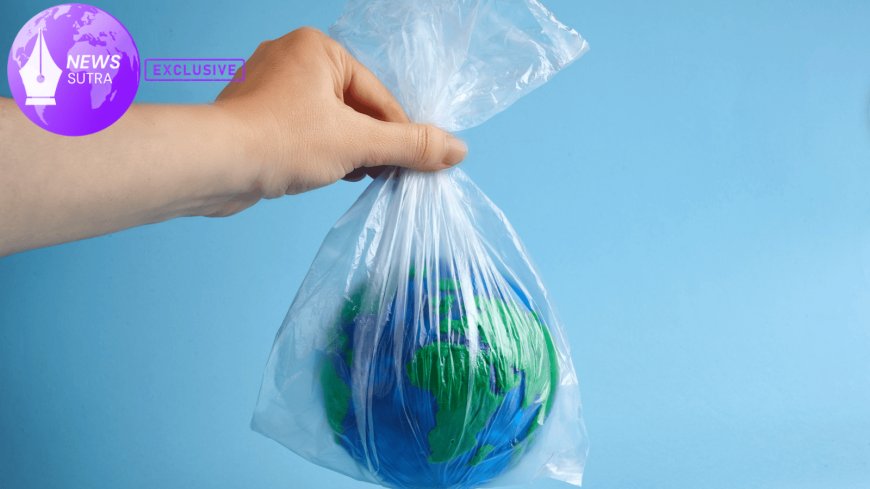Plastic Pollution Treaty Talks Collapse: Oil States’ Role Exposed Through Leaked Negotiations
Global plastic treaty talks collapsed after oil states blocked restrictions, leaks reveal. Inside lobbying data, U.S. positioning, and the high stakes of petrochemical economics.

As global attention fixed on the promise of a historic treaty to curb plastic pollution, confidential diplomatic leaks have now revealed why talks collapsed. Behind the closed doors of international negotiations, oil-producing states—backed by powerful petrochemical lobbies—mounted a coordinated resistance to any binding restrictions. The fallout not only derails a crucial environmental milestone but also exposes how deeply fossil fuel interests remain intertwined with the future of plastics.
Leaks Shine Light on Lobbying Power
According to leaked notes reviewed by environmental analysts, delegates from major oil-exporting nations consistently blocked proposals that would have capped virgin plastic production. While European and Latin American countries rallied for strong limits, oil states reportedly argued that such measures would threaten “economic sovereignty.”
Internal memos from lobby groups show how energy companies intensified pressure in the weeks before the summit, spending millions to sway negotiators. These documents confirm what many climate activists had suspected: that the talks were less about environmental urgency and more about preserving lucrative petrochemical markets.
Why Plastics Matter in the Energy Equation
Plastics are no longer just a packaging issue. As renewable energy grows, oil companies increasingly see petrochemicals as a financial lifeline. With global demand for gasoline projected to plateau, plastics have become the industry’s fallback product. This shift explains why oil-rich nations fought tooth and nail against restrictions that could undercut future profits.
“The battle over plastics is really a battle over oil’s long-term survival,” said one diplomat familiar with the closed-door exchanges. “What we witnessed was not just environmental negotiation—it was energy geopolitics at its sharpest.”
U.S. Position Under Scrutiny
The United States, which presented itself as a mediator, now faces tough questions. Leaked summaries suggest U.S. negotiators softened their stance during critical sessions, aligning at times with oil producers. While the White House has pledged leadership on plastic reduction, environmental watchdogs argue that U.S. reliance on petrochemical exports undermined its credibility.
For communities along the Gulf Coast—home to some of the largest plastic production hubs—this failure carries immediate implications. Environmental justice advocates note that weaker global rules could prolong local pollution, placing frontline neighborhoods at higher risk of health impacts.
Fallout for Global Environmental Policy
The treaty’s collapse leaves the world scrambling for alternatives. Some regions, such as the European Union, are considering unilateral bans on specific plastics, while countries in Africa and Asia may pursue regional pacts. Yet without a coordinated global framework, environmental experts warn that plastic waste will continue to choke oceans and strain waste management systems.
“The planet cannot afford another lost decade,” said Maria Lopez, a leading oceanographer. “Every year without action adds millions of tons of plastics into ecosystems that are already collapsing.”
Data Breakdown: How Lobbying Tipped the Scale
Leaked lobbying disclosures reveal staggering figures:
-
Over ₹4,000 crore in lobbying expenditures linked directly to treaty negotiations.
-
At least six oil-producing nations reportedly shared draft language prepared by petrochemical lobbyists.
-
More than 50% of proposals calling for binding caps were struck down before reaching final discussion.
These figures highlight the stark imbalance between environmental advocates and industrial powerhouses.
What Comes Next
The failure of the treaty talks may not be the end of the fight. Environmental coalitions are mobilizing to push for national-level bans, corporate accountability, and legal challenges to petrochemical expansion projects. For now, however, the breakdown has given oil states breathing room—and extended plastics’ dominance.
For citizens, the message is sobering: the fight against plastic pollution is not simply about recycling habits, but about dismantling entrenched economic structures. Without a breakthrough, the world risks entrenching a cycle where environmental urgency repeatedly collides with fossil fuel interests.
What's Your Reaction?
 Like
0
Like
0
 Dislike
0
Dislike
0
 Love
0
Love
0
 Funny
0
Funny
0
 Angry
0
Angry
0
 Sad
0
Sad
0
 Wow
0
Wow
0








































































